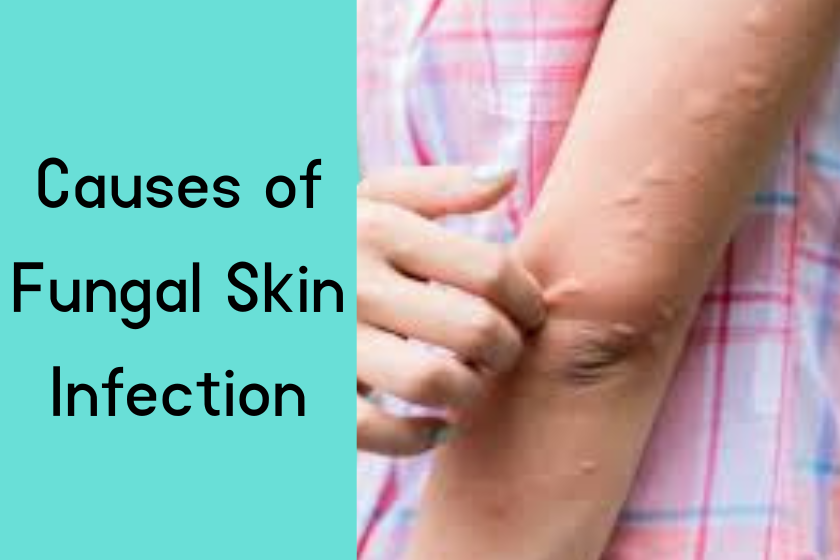Fungal Skin Infection: Causes, Symptoms, and Treatment

Fungal skin infections are skin problems a lot of people get. They happen when tiny fungus bugs, like yeast or mold, grow on the skin. This can make your skin itchy or look different than usual. It can happen on your feet, private parts, head, or nails. We’re going to talk about why this happens, what signs to look out for, and how to make it better.
Learn also: 15 Teeth Care Tips at Home
Causes of Fungal Skin Infection
Fungal skin infections spread really easily. You can catch them from other people or by touching things that have the fungus on them. The fungus that causes these problems loves places that are warm and wet, so parts of your body that are like that can get infected more often. This means you have to be careful because it’s easy to get or pass on these infections without realizing it.

These are common causes of fungal skin infections:
- Prolonged exposure to damp or wet conditions
- Poor hygiene
- Weakened immune system
- Sharing personal items, such as towels or clothing, with an infected individual
- Walking barefoot in public places, such as swimming pools or locker rooms
Learn also: Skin Cancer: Types, Treatment, Symptoms
Fungal Skin Infections Symptoms
The fungal skin infections symptoms can vary depending on the type of infection and the area of the body affected. However, some common symptoms include:
- Redness and inflammation of the skin
- Itching and burning sensation
- Peeling or cracking of the skin
- Blisters or sores
- Thickened, discolored, or brittle nails
Fungal Skin Infection Treatment Options
The fungal skin infection treatment typically involves a combination of topical and oral medications. Doctors usually suggest using special creams or lotions and sometimes pills too. They also give advice on changes you can make in your daily life to stop the infection from coming back.
Here’s some options of fungal skin infection treatment:
Antifungal Creams: It is an antifungal cream (Canesten) for external use only. You apply these directly to the infected area like hands, nose, face, legs etc. Please take consultancy from skin care specialist before apply or using.

Prescription Medications: If the usual creams you buy at the store don’t work for a really bad fungal infection, a doctor might give you stronger medicine. This could be pills that you swallow or special creams that are stronger than the ones you can buy without a prescription.
Home Remedies: There are some natural treatment for fungal infections. Such as tea tree oil or apple cider vinegar, may have antifungal properties and can be used as complementary treatments.
Improving Tips for Fungal Skin Infections
- Keep the affected area clean and dry
- Avoid using harsh soaps or scrubbing on affected area
- Avoid tight-fitting clothing
- Wear loose-fitting, breathable clothes
- Avoid wearing damp or sweaty clothes
- Use antifungal powders or sprays
- Avoid scratching or picking at the affected area
- Avoid sharing personal items like towels, clothes etc.
- Maintain a healthy immune system
“Your ability to break down intricate topics into digestible pieces is remarkable. This article is a perfect blend of depth and readability.”